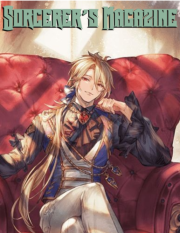A-Rank Examination Go-Ahead
Beira, cloaked as was her usual preference, sat quietly in a tavern in the town called Shirotsume. Despite it being a small town, it had some rather large buildings, and it was quite clear to see that the law seemed to hold a rather large amount of sway in these parts. The whole system was irritating to Beira: a few rich people owned the land, and were thus positioned to be served by the rest of the town. What gave the land owners right to lord it over their contemporaries? It was most likely the fact that these ‘lords’ simply had more economic might than their vassals, and thus could do whatever they wanted. As was the case everywhere Beira turned, power was the most important factor. Those who had it did whatever they pleased to those who didn’t. What made things even more irritating was that the weaker ones, the underdogs, though they complained about the execrable conditions of life, they actually supported and strengthened such behaviors by their action, or more correctly, inaction. If a noble’s rule was met with resistance, even to the point of death, the noble would have to acquiesce to the demands of the common people, or risk being lord of a graveyard. But if the commoners knew this, they seemed to pretend to be unaware, preferring the subjugation to such exploitative rule as the option to freedom, whose risk was possible loss of life.
Well, fortunately for Shirotsume, Beira was here to shake up a little hornet’s nest. She had been given the authorization by her guild, Errings Rising, to interfere as completely as possible with the coming of an official from Bosco, whose intention was to make Shirotsume “safer”, as was said. The way Beira saw it, it was to make the rich in Shirotsume safer, and richer as well, as curfew fines and protection tax were involved, and one could only guess who would have the common sense to manage the protection taxes and fines. It certainly was not the commoners. Of course, her meddling would be seen as utter criminality, especially seeing that she was sent there on assignment by a dark guild. Yet, what many did not know was that dark guilds, as opposed to the general belief, were not all about wanton violence, murder and crime, though to be honest, many of their adherents ran down such paths. Errings Rising, as anarchistic as it was, had its reasons for the things it did, and, surprisingly enough to those who knew little of the guild’s workings, despite its bloody reputation, never forced its members to do things they did not wish to do.
Beira, for instance, had been worried that she would be given a mission involving the killing of innocents, but it seemed the guild, as twisted as it was, understood its members and took cognizance of their value systems. She had been given this mission, and had responded to the authorities of the guild that, as was her way of doing things, she would carry out research on the matter at hand, and if she didn’t deem the happenings wicked, she would not be compelled to move. Interestingly, she had been allowed to carry out her examinations, and at the end of seeing the state of Shirotsume, the Utgardian maiden was convinced that the people thereof needed less stringent laws, and especially laws being forced on them by some foreigner who knew little and cared less about their predicaments. Of course, there were many who would argue that Beira was doing evil, despite her apparently noble intentions, but she was sure that there were many things that “good” people could not do, because of their desire to be seen as heroes. She was one of the sort that would get her hands dirty for the greater good. She didn’t care that she would not be seen as a hero, especially not by many of the leaders of Shirotsume, but maybe the generations to come would thank her for this.
Beira had carefully observed the Boscan official multiple times. A decadent, hedonistic brat who had most definitely gotten this government role simply because her parents ranked high in the Boscan technocratic hegemony. Having read sufficiently about Bosco, Beira knew that its people lived in luxury. Those in Fiore were not as lucky. And now, Bosco wanted to show Fiore how much it cared, by sending someone to implement laws, instead of sharing technology? It was quite obvious Bosco didn’t have Fiore’s good intentions at heart. And it was Beira’s job to save Fiore, or Shirotsume at least, by making sure the law was never implemented. Fortunately, rubbing shoulders with the common folk had alerted Beira to the fact that quite a number of the Shirotsume people were not so welcoming of the new law, but as was expected, they were waiting for a braver person to do something about it. They were lucky. Beira was around.
For Beira, the best way to deal with this matter would be to take out the Boscan diplomat by means of the rabble. While the exploitative leaders deserved their own come-uppance, Beira didn’t plan on being the one to give it to them. Their own people would judge them on that as well. But to encourage the base person to have a spine, a lot of secret manipulations and plannings would have to be carried out. This was where being a studious individual paid off. For by studying the task at hand, it became easier to find strategies with which to deal with it, than by just simply taking it head on, and hoping that by some dealing of Providence, a solution would materialize out of the blue, to be taken advantage of. If an unexpected solution were to appear, Beira preferred that it met her with all her bases already covered. It didn’t hurt to have a few other prospective solutions, in case the one you had in mind unexpectedly went off the rails, in spite of its potential.
WC: 1007/2000
Beira, cloaked as was her usual preference, sat quietly in a tavern in the town called Shirotsume. Despite it being a small town, it had some rather large buildings, and it was quite clear to see that the law seemed to hold a rather large amount of sway in these parts. The whole system was irritating to Beira: a few rich people owned the land, and were thus positioned to be served by the rest of the town. What gave the land owners right to lord it over their contemporaries? It was most likely the fact that these ‘lords’ simply had more economic might than their vassals, and thus could do whatever they wanted. As was the case everywhere Beira turned, power was the most important factor. Those who had it did whatever they pleased to those who didn’t. What made things even more irritating was that the weaker ones, the underdogs, though they complained about the execrable conditions of life, they actually supported and strengthened such behaviors by their action, or more correctly, inaction. If a noble’s rule was met with resistance, even to the point of death, the noble would have to acquiesce to the demands of the common people, or risk being lord of a graveyard. But if the commoners knew this, they seemed to pretend to be unaware, preferring the subjugation to such exploitative rule as the option to freedom, whose risk was possible loss of life.
Well, fortunately for Shirotsume, Beira was here to shake up a little hornet’s nest. She had been given the authorization by her guild, Errings Rising, to interfere as completely as possible with the coming of an official from Bosco, whose intention was to make Shirotsume “safer”, as was said. The way Beira saw it, it was to make the rich in Shirotsume safer, and richer as well, as curfew fines and protection tax were involved, and one could only guess who would have the common sense to manage the protection taxes and fines. It certainly was not the commoners. Of course, her meddling would be seen as utter criminality, especially seeing that she was sent there on assignment by a dark guild. Yet, what many did not know was that dark guilds, as opposed to the general belief, were not all about wanton violence, murder and crime, though to be honest, many of their adherents ran down such paths. Errings Rising, as anarchistic as it was, had its reasons for the things it did, and, surprisingly enough to those who knew little of the guild’s workings, despite its bloody reputation, never forced its members to do things they did not wish to do.
Beira, for instance, had been worried that she would be given a mission involving the killing of innocents, but it seemed the guild, as twisted as it was, understood its members and took cognizance of their value systems. She had been given this mission, and had responded to the authorities of the guild that, as was her way of doing things, she would carry out research on the matter at hand, and if she didn’t deem the happenings wicked, she would not be compelled to move. Interestingly, she had been allowed to carry out her examinations, and at the end of seeing the state of Shirotsume, the Utgardian maiden was convinced that the people thereof needed less stringent laws, and especially laws being forced on them by some foreigner who knew little and cared less about their predicaments. Of course, there were many who would argue that Beira was doing evil, despite her apparently noble intentions, but she was sure that there were many things that “good” people could not do, because of their desire to be seen as heroes. She was one of the sort that would get her hands dirty for the greater good. She didn’t care that she would not be seen as a hero, especially not by many of the leaders of Shirotsume, but maybe the generations to come would thank her for this.
Beira had carefully observed the Boscan official multiple times. A decadent, hedonistic brat who had most definitely gotten this government role simply because her parents ranked high in the Boscan technocratic hegemony. Having read sufficiently about Bosco, Beira knew that its people lived in luxury. Those in Fiore were not as lucky. And now, Bosco wanted to show Fiore how much it cared, by sending someone to implement laws, instead of sharing technology? It was quite obvious Bosco didn’t have Fiore’s good intentions at heart. And it was Beira’s job to save Fiore, or Shirotsume at least, by making sure the law was never implemented. Fortunately, rubbing shoulders with the common folk had alerted Beira to the fact that quite a number of the Shirotsume people were not so welcoming of the new law, but as was expected, they were waiting for a braver person to do something about it. They were lucky. Beira was around.
For Beira, the best way to deal with this matter would be to take out the Boscan diplomat by means of the rabble. While the exploitative leaders deserved their own come-uppance, Beira didn’t plan on being the one to give it to them. Their own people would judge them on that as well. But to encourage the base person to have a spine, a lot of secret manipulations and plannings would have to be carried out. This was where being a studious individual paid off. For by studying the task at hand, it became easier to find strategies with which to deal with it, than by just simply taking it head on, and hoping that by some dealing of Providence, a solution would materialize out of the blue, to be taken advantage of. If an unexpected solution were to appear, Beira preferred that it met her with all her bases already covered. It didn’t hurt to have a few other prospective solutions, in case the one you had in mind unexpectedly went off the rails, in spite of its potential.
WC: 1007/2000























